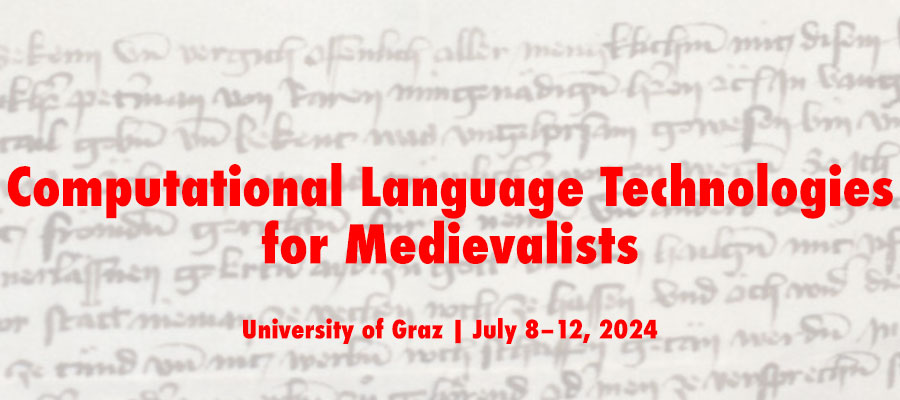Computational Language Technologies for Medievalists, University of Graz, July 8–12, 2024
Natural Language Processing (NLP) has emerged as a crucial skill in many Digital Humanities scenarios seeking to unlock the potential of language-based technologies. Due to the particularities of medieval languages (e.g. special characters, historical language levels, scarce training data) medieval studies put particular challenges to the standard NLP methods. In our Summer School, we aim to guide postgraduate and PhD level participants through the conceptual foundations of NLP, offering hands-on exercises tailored to empower medievalists in curating content and managing metadata. This will include training in topic modeling, text re-use, authorship attribution, stylometry and basic application of large language models. Discover how to optimize your time and efforts effectively while integrating new tools into your scholarly pursuits.
In preparation for the main curriculum, we offer pre-school learning materials specifically designed to support novice applicants. These materials will provide foundational knowledge and essential skills, ensuring that participants, regardless of their level of expertise, can fully engage with and benefit from the Summer School experience.
No prior advanced mathematics or computer science knowledge is mandatory. Possessing basic Python syntax knowledge and command line-based or interactive computing environment-based (Jupyter Notebook, Google Colab) script execution is, however, advantageous.
This initiative is generously funded by the University of Graz, ZIM-ACDH and the ERC DiDip Project.
